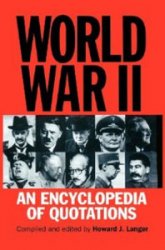Childhood
Little in Russell Means’s early life would have indicated that he had a promising future as a leading Indian activist and advocate for Indian rights and selfdetermination. Although he was born on the Pine Ridge Reservation in South Dakota (on November 10, 1939), he moved with his parents, Walter “Hank” Means and Theodora Louise Feather, to California in 1942.
Hank Means was an Oglala born at Pine Ridge; Russell’s mother was a Yankton from the Yankton Sioux Reservation, also in South Dakota. Hank, according to his son, was a traditional Indian, while Theodora Louise Feather became a Christian. Nonetheless, his mother also kept to some of the old ways. For example, she gave her son, in addition to the Euro-American name Russell, the name Wanbli Ohitika, which means “Brave Eagle.” Both of Means’s parents attended boarding schools, with the father later becoming a star basketball player at Pine Ridge High School. Means spent most summers of his early childhood with his maternal grandparents, John and Mabel Feather, at Greenwood on the Yankton Reservation, where his grandfather taught him much about the outdoors and his culture.
A brother, Dace, was born in 1941, followed by twin boys, Bill and Ted, in 1946. The Means family lived in Vallejo, California, where Hank worked as a welder in a U. S. Navy shipyard. That job lasted only until the end of World War II. At that point, the family returned to South Dakota, staying with Mabel and her new husband, Raymond Blacksmith, in Huron. Russell’s grandmother, whom he and his siblings called Grandma Twinkle Star because of her fondness for the childhood song “Twinkle, Twinkle, Little Star,” had divorced John Feather by that time.
Russell attended an almost all-white school in Huron for the remainder of the school year. After the twins’ birth, the family returned to California, taking up residence in the same neighborhood in Vallejo. Hank was rehired as a welder at the shipyards, and Theodora went to work as a secretary at Travis Air Force Base, the type of work she had done earlier at Pine Ridge after attending Haskell Institute in Kansas.
Adolescence
Russell Means attended Franklin Junior High School, where he did well academically and participated in track and basketball. He also was baptized as an Episcopalian and attended a Baptist Sunday school, although he notes in his autobiography that he had lost his belief in Christianity as early as the second or third grade. At about the age of 13, he developed an interest in traditional Indian culture that would stay with him throughout his life.
By 1954, the Means family had moved into their own house in San Leandro, south of Oakland. In the fall, Russell entered San Leandro High, where, he writes, “almost every aspect of my life took a radical turn.”1 Many of those turns were far from positive.
He did well at San Leandro for a time, taking college-prep courses and earning good grades. Soon, however, he was drinking, stealing whiskey from a liquor store, skipping school, and hanging out with other rebellious kids. Arrests started coming—first for stealing beer, then for being in a car that a friend had stolen from his mother. Cutting classes led to suspensions.
Means’s mother grew increasingly frustrated with her son’s behavior. She sent him to live with an uncle on the Winnebago Reservation in Nebraska, but his behavior did not improve there. In fact, after being beaten up, Means found himself in a hospital. He then moved in with his Aunt Faith and her husband and informed his mother that he was planning to quit school. Thus began a long series of temporary jobs, starting with selling scrap iron to a junkyard.
Means returned to live with his parents in 1956 and enrolled in high school in San Leandro. There he joined with friends to sell “protection service” to other students and began selling drugs, moving steadily from marijuana to prescription pills and finally to heroin. He committed burglaries at pharmacies and even persuaded his brother Dace to sell drugs for him. When his family moved back to Vallejo, Means stayed behind in the house until it was sold and managed to graduate from high school in January 1958.
Moving into the Work Force
Over the next few months, Means periodically tried to move in positive directions. He attended Oakland City College and temporarily stopped dealing drugs, only to return to the practice after a few months. He decided not to continue with college and tried to enlist in the army, but was rejected by the recruiter when he showed up at the recruiting station still high from a series of parties.
In December, Means got a ride to his parents’ home in Vallejo, just in time to accompany his mother and Dace to Los Angeles to visit relatives. When the pair returned home, Means stayed behind and found a job as a mail-room messenger with General Petroleum. While staying at the Kirby Hotel, he met Twila Smith, a Minniconjou who was attending Sawyer School of Business. The two established a relationship, and Twila became pregnant. She later returned home to the Cheyenne River Reservation to have the child.
By 1960, Means had decided to return to Pine Ridge and apply for the relocation program through the Bureau of Indian Affairs (BIA), hoping to return to Los Angeles with financial support and attend school. While awaiting a response to his application, Means visited Twila on the Cheyenne River Reservation to see her and their recently born daughter, Sherry.
In October 1960, Means returned to Los Angeles in the relocation program and applied to Sawyer School of Business. Twila and Sherry joined him there. He worked at a variety of jobs and then started at Sawyer. With Twila again pregnant, the couple decided to marry, which they did on November 10, 1961, Means’s twenty-second birthday. The child, named Walter after Means’s father, was born in February, but the marriage did not last much longer. Means acknowledges that he “was too young and ignorant, far too immature to be a husband, let alone a father.”2
The following months included radically different pursuits: working hard at his accounting program but also teaming up with a prostitute to roll men. Means received straight A’s in his courses but ran into trouble with the Bureau of Indian Affairs for not attending classes. As he explained, he was the only student still active in his program, and his instructors had him continue in what today would be called an independent-study course. That did not satisfy the BIA official, who argued that regular class attendance was required.
Dropped from the relocation program and without financial support, Means spent his time hustling money, sometimes sleeping outside, and getting arrested for public drunkenness. After receiving a letter demanding child support for his children, Means left Los Angeles for San Francisco.
In San Francisco, Means worked as a dance instructor, among other jobs. He also established a relationship with Betty Sinquah, a Hopi from Arizona who would become his second wife. In March 1964, with Betty now pregnant, Means’s life would slowly start moving in the direction that would give it great meaning. His father arrived from South Dakota planning to participate in a demonstration at Alcatraz, the former federal prison, and invited his son to go with him.
The Takeover of Alcatraz
The federal government had closed the prison on Alcatraz Island in 1963. Under the 1868 Treaty of Fort Laramie, the government was obligated to permit land taken from Indians and later abandoned to revert to those who previously had lived on it. The point of occupying Alcatraz was thus more than
Symbolic. Although federal legislation had since removed the return provision of the treaty, Indians had not agreed to such a change in the treaty and, therefore, laid claim to the former prison grounds and the rest of the island.
On March 8, 1964, 40 Sioux led by Richard McKenzie and Mark Martinez, both welders, and Allen Cottier, descended from Crazy Horse, occupied the island for approximately 4 hours. Means and his father were among the group. Paul Chaat Smith and Robert Allen Warrior say in Like a Hurricane: The Indian Movement from Alcatraz to Wounded Knee that the leaders “saw the action as a publicity stunt, and never thought of a long-term occupation.”3 Smith and Warrior, though, recognized the serious impetus behind the event —the importance of honoring treaties. This theme would run throughout much of Indian political efforts throughout the next 20 years, including the Trail of Broken Treaties that Means would help lead 8 years later.
Also along for the takeover was a group of reporters, and soon U. S. marshals arrived. The occupiers’ lawyers recommended avoiding a confrontation and pursuing claims in the courts. Not surprisingly, those claims were rejected. This would be Russell Means’s first of many political actions on behalf of Indians. Despite the failure of the lawsuit, the initial event at Alcatraz would not be forgotten: Five years later, a much longer occupation of the island took place.
A second major influence that would have repercussions throughout Means’s life occurred on the Hopi Reservation in Arizona. When Means had first visited Betty Sinquah’s family there in 1962, he had been deeply impressed by the Hopis’ traditional spiritual life. He had accompanied Betty’s father to a kiva, for example, where they spent the night in prayer and meditation.
Means returned to the Hopi Reservation in 1964 as Betty was about to give birth to their child, Michele Bridget, who was born on September 10. Means then went to Albuquerque, where he danced professionally at various locations, including shopping centers, and Betty and Michele joined him there.
In the summer of 1965, Means moved to Rapid City, South Dakota, looking for work and stayed with his mother. With his brother Ted, Means continued dancing; among the places where he performed was a bar owned by James Abourezk, a law school student who would later become a United States senator. Another bartender for Abourezk was also a law student—William Janklow, later to figure prominently in Means’s life. Means returned to Greenwood later that summer, where he received a new name from his mother’s sister, his Aunt Evelyn: Cio, which refers to the prairie chicken, a connection perhaps being the animal’s attractive mating dance.




 World History
World History









